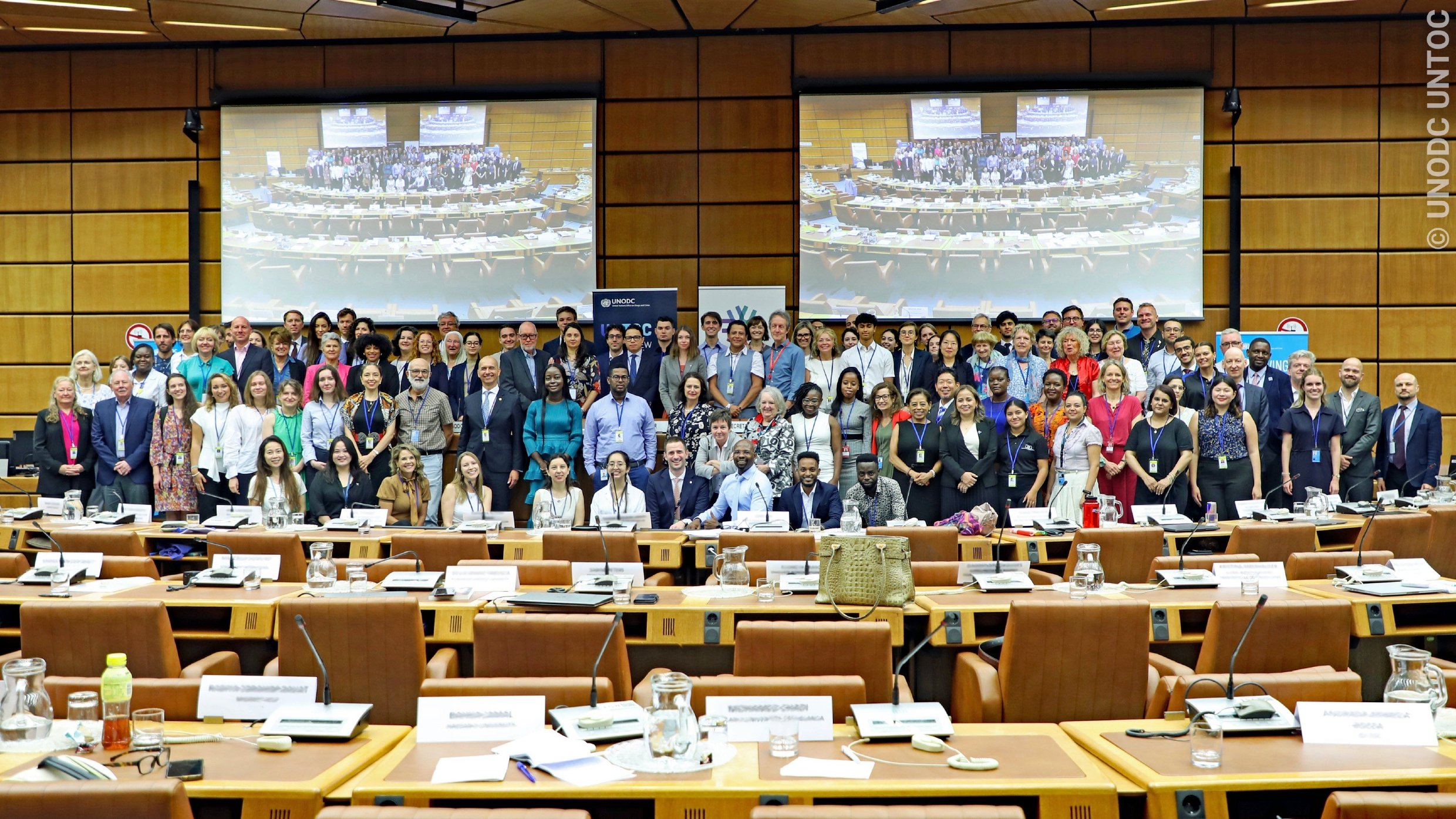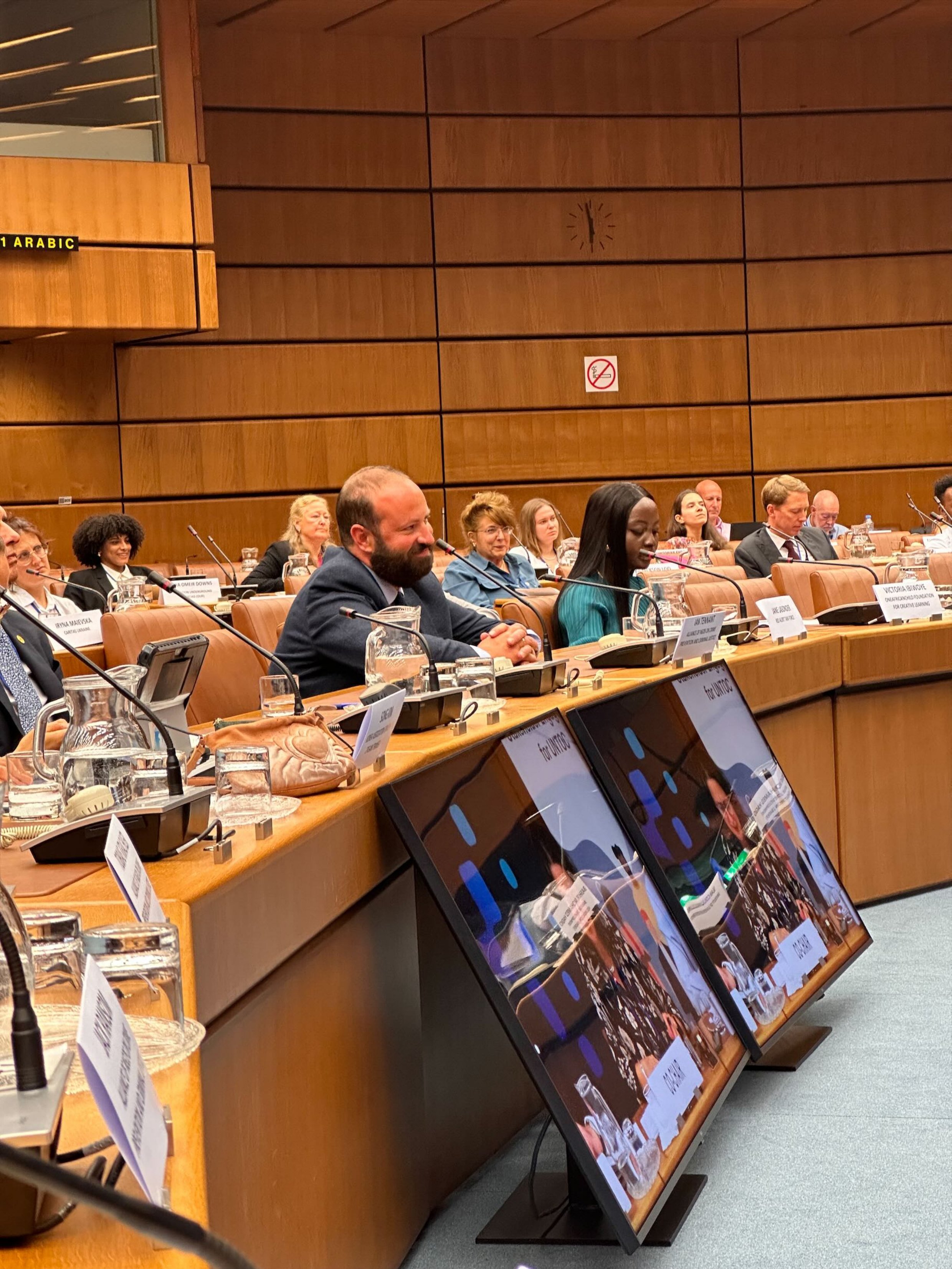Constructive Dialogue on Smuggling of Migrants 2024
From the 12th of July and concluding on the 15th of July, The Alliance participated in a constructive dialogue on the smuggling of migrants. Members of The Alliance joined other NGOs and stakeholders to discuss the UNTOC review process and hear from two panelists to better understand and combat the smuggling of migrants. This collective effort fostered an environment of collaboration and academic thought, aiming to reduce the rate of human smuggling on an international level.
During the briefing on the developments and outcomes of the UNTOC review mechanism process, it was highlighted that more progress is needed, particularly as the process remains stuck in Cluster 1. To accurately measure progress, additional indicators must be developed. Furthermore, the entire process requires greater transparency to facilitate the sharing of ideas and information among stakeholders. Our chair, Ian Tennant, emphasized the importance of civil society's role in constructive dialogue. The UNTOC review mechanism process is crucial for constructive dialogues, and The Alliance is actively advocating for improvements to ensure accurate and reliable solutions.
Panel One focused on preventing and combating the smuggling of migrants through international cooperation while addressing its root causes, in line with the United Nations Convention against Transnational Organized Crime and its Protocols. The co-chair specifically asked, "What are the underlying factors driving the smuggling of migrants, and how can they be addressed through targeted and meaningful interventions?" The panelists provided an in-depth analysis of the push and pull factors associated with migrants seeking to leave their countries and recommended several possible interventions, including:
- Creating labor migration programs
- Facilitating family reunification
- Expanding visa options to reduce the need for irregular migration
The panel concluded with a discussion on ensuring that NGOs supporting migrants for humanitarian reasons are not criminalized for their work. Additionally, actions to combat migrant smuggling must have a gender perspective to protect women and the LGBTQIA+ community.
The second panel addressed the question, "What are the main risks faced by women and children in smuggling, and what sort of assistance do they need?" It was identified that viewing migration through a gendered perspective is pivotal for properly assessing and addressing these issues. The Women’s Pro Bono Initiative presented several important recommendations, including the need for comprehensive and consultative bilateral or multilateral agreements between countries to ensure oversight. They also emphasized the importance of enacting and reviewing national migration policies to protect migrants against violence and raise awareness, especially in the informal sector. Additionally, they highlighted the need to strengthen the implementation of laws addressing gender discrimination, particularly concerning unpaid care work.
The day concluded with an interactive exchange on relevant activities of non-governmental stakeholders, fostering further collaboration and information sharing. The main topics discussed included the negative impacts of criminalizing migrants, the nexus of corrupt state officials and crime groups, and early transnational crime education with native speakers as educators to better reach illiterate populations. This conversation positively impacted the combined efforts to protect migrants and prevent further exploitation and trafficking of vulnerable populations.
The constructive dialogue on the smuggling of migrates exemplified the power of collaboration in addressing the complex issues of migrate smuggling. The Alliance, alongside other NGOs and stakeholders discussed the necessity for more progress in the UNTOC review process. Our chair Ian Tennant highlighted the importance of civil society's role in constructive dialogue. Through panel discussions, critical recommendations were made to address the root causes of migrant smuggling and to protect the most vulnerable, including women and children. Moving forward, the combined efforts initiated during this dialogue will play a vital role in reducing the incidence of migrant smuggling and enhancing the protection of migrants on a global scale. The Alliance remains steadfast in its dedication to these objectives, continuing to push for constructive and actionable solutions in the fight against human smuggling.
23 Jul, 2024

